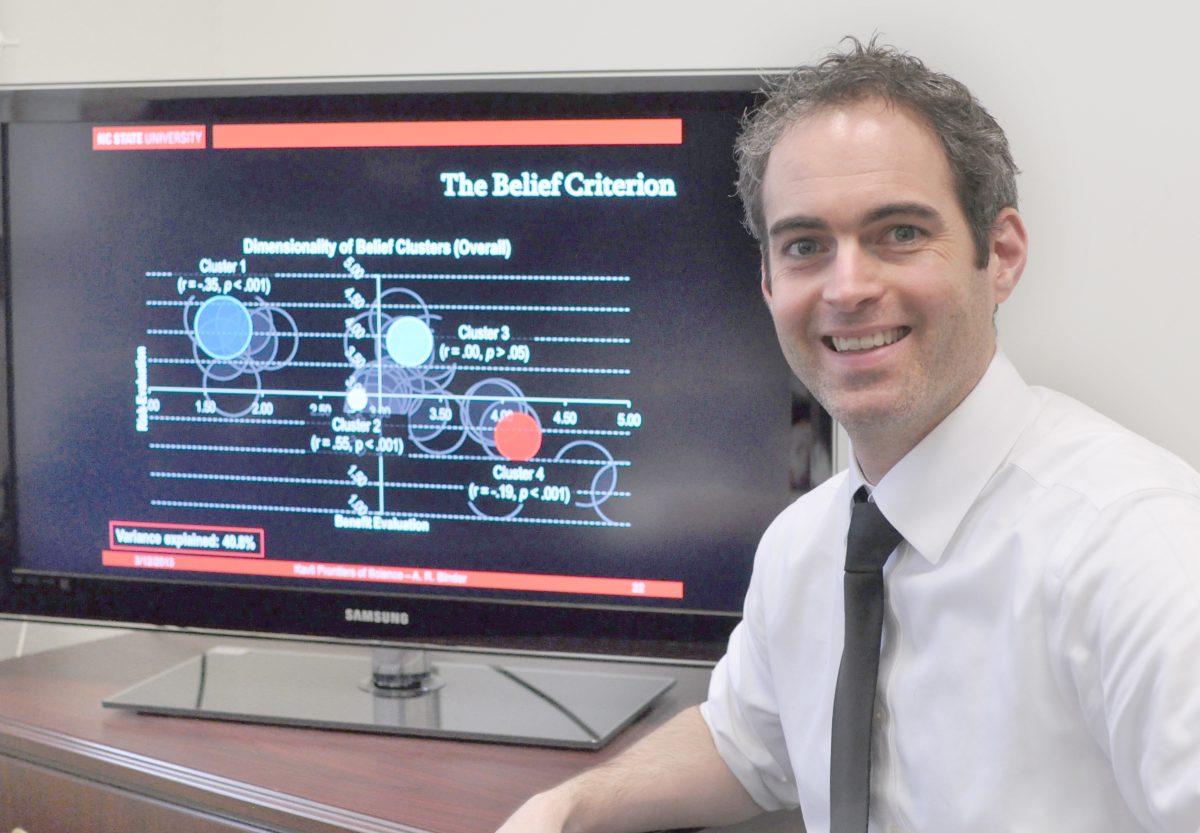Communication and the hard sciences are on two opposite ends of the educational spectrum. However, according to Andrew Binder, an assistant professor in communication, the combination of the two can be vital for both fields.
“It would be impossible to conduct scientific research without effective communication, and this has been true for a very long time,” Binder said. “Right now a stronger emphasis on public communication is needed because we no longer live in a society where problems can be separated easily into ‘science’ and ‘non-science’ or ‘political’ and ‘non-political.’”
Binder, therefore, is working in research in communications to better understand how scientists and engineers can converse with the public. He focuses on public perceptions of controversial science issues, and how these perceptions change behaviors. “[The questions I ask] have to do with what people believe about science and scientists, and where those beliefs originate.”
For example, he studies what the unifying characteristics of public belief are, how those characteristics are influenced by mass media and how they are influenced by a person’s social environment.
Binder primarily relies on surveys of the general public and analysis of news coverage. “To a lesser degree, I’ve employed experimental designs to test causal effects of mass media messages, and in-depth interview to get a better, deeper understanding of what people believe about science.”
Binder says that engaging in ongoing, two-way conversations with people on a daily basis also helps him understand the intentions and beliefs of the general public. “Asking people we encounter in everyday life, the clerk at the grocery store for example, for their thoughts about [scientist’s] work and then listening to what they say can go a long way in raising our own consciousness. I do this kind of work through large public opinion surveys, but everyday conversation can be just as enlightening if we let it.”
According to Binder, this research in science communication will be vital for scientists for a variety of reasons, one being so that they can effectively communicate to politicians. “Whether we like to admit it or not, politics plays a large role in shaping scientific research, especially when it comes to federally funded research projects.”
Binder stressed the fact that scientists need proper communication to relay their ideas effectively so that they can gain public support. “From a communication perspective, it’s vitally important for scientists to make a strong, persuasive case for why what they are doing is important. Not just to the funding agency, as they have been trained, but to the elected officials and administrators who make decisions on these matters.”
Binder also said that scientists needed to learn to communicate for less practical reasons as well. For instance, greater communication of their research would be appreciated by the general public. “There’s the old notion of sharing in the excitement of curiosity and discovery!” Binder enthusiastically said. “For many people, learning about science stopped in high school or college, and they remain partially if not completely unaware of many advances in various fields since that time. They will likely be just as amazed and inspired as the scientists doing the research.”
According to Binder, a lack of public knowledge is to blame for the lack of support of science in the United States. However, he believes that the scientific community is also partially to blame. “The problem is not as much about lack of citizens’ scientific literacy, although that is a separate problem, as much as how we communicate about science.”








